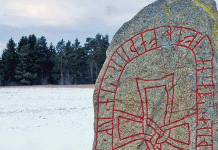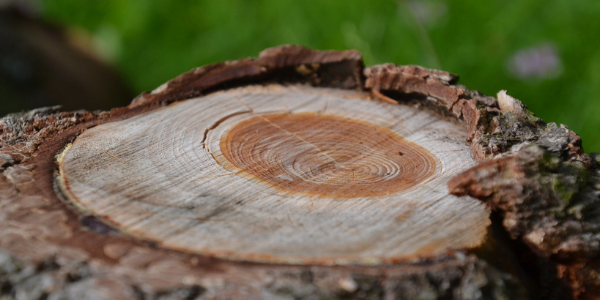
In August of 2016, the leader of a major Heathen group known as the Asatru Folk Assembly (AFA) uploaded a statement on Facebook. In this statement, Matt Flavel made explicit the prejudices that the AFA had winked at for years, writing
Today we are bombarded with confusion and messages contrary to the values of our ancestors and our folk. The AFA would like to make it clear that we believe gender is not a social construct, it is a beautiful gift from the holy powers and from our ancestors. The AFA celebrates our feminine ladies, our masculine gentlemen, and, above all, our beautiful white children. The children of the folk are our shining future and the legacy of all those men and women of our people back to the beginning. Hail the AFA families, now and always!
So, there it was.
The AFA had been playing fast and loose with bigotry for years, but always with the coy “we’re not anti x, we’re just pro y” rhetoric that groups like the Klu Klux Klan began to employ in the ’90s. Former AFA leader Stephen McNallen, dogged for years by criticism for his racist and pro-Nazi statements, had stepped down earlier in the year, and new leader Matt Flavel had decided to up the ante, adding homophobia and transphobia to overt racism. The AFA had made it clear: if you weren’t white and straight, you were not welcome.
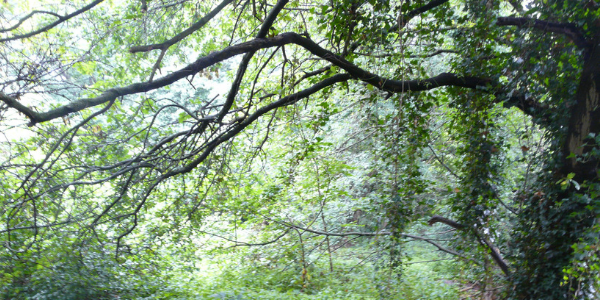
Recognising an old problem
As appalling as this was, it was not exactly new. The divide had existed within Heathenry for quite some time, often characterized as the divide between “folkish” Heathens and “universalist” Heathens. Becoming a Heathen myself has meant learning certain code words. This is not meant to sound sinister; obviously every group has its codes. But “folkish” and “universalist” seemed a little tricky. In North America in particular, organizations had formed, split, fragmented and re-formed over this divide.
In its simplest terms, the issue is this: should Heathenry be exclusively for those of Northern European descent, or should it be accessible to anyone who is interested?
For me, the answer seems pretty obvious, both in general and historical terms. There is no evidence for exclusions based on race or culture or genetics among the original practitioners of Heathenism; indeed, the medieval Scandinavian world was a pretty cosmopolitan place. Even if there was, I would not accept that as a guide to my own practice: just because those who have gone before me were dicks does not mean that I have to be a dick. The construction of Heathenry as a racialized identity has far more to do with the 19th century “Volkisch” Germanic revival movement and, from there, straight to the Nazis.
Related: The Return of Odin, reviewed by John Farrell
Related: Long way home: Hail and Horn Gathering 2018, by John Farrell
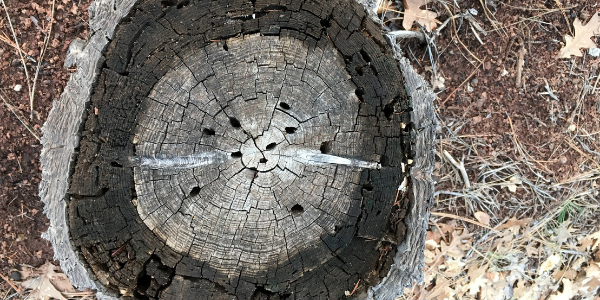
Those damn Nazis
Those damn Nazis. They continue to exercise their iconic, toxic, weird hypnotism among the hate-filled, alienated, messed-up white supremacists who lurked for years in darkness and are now starting to step into the sunlight. And for some reason (maybe a lot of reasons), the mainstream world seems so reluctant to call these people what they are: fucking racists, who pose an immediate threat to everyone else.
Even as I write this, here in Canada the CBC is reporting the recent seizure and burning of a Nazi flag in small town Saskatchewan as the theft and destruction of a “controversial flag.” Controversial! Whom are we afraid of offending, the Nazis? Because I actually think it’s ok to offend Nazis. Sorry, if that’s shocking.1
That same reluctance to offend has seemed to manifest historically in the debate between folkish and universalist Heathens. We can call folkish Heathenism “controversial”, if we like, for fear of offending anyone, but again, there are some people that I’m ok with offending: Nazis, folkish Heathens, and mimes. (But that last one’s personal, I’ll admit.) So, let me be clear: if you align yourself with folkish Heathenism, you are aligning yourself with homophobic, transphobic racists.
In a weird way, Matt Flavel of the AFA did us all a favour: he put his cards on the table, and made his ideology clear. The only question that remained was: how would universalist, inclusive Heathenry respond?
Related: Heathens, we have a Nazi problem, by John Farrell
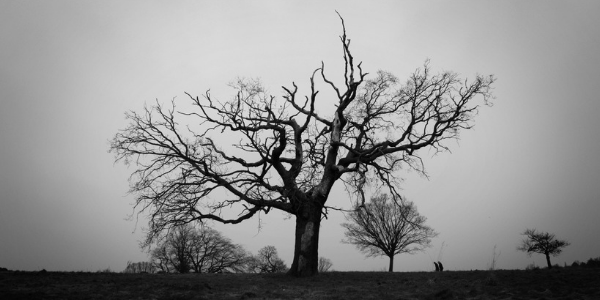
Heathens clap back
I am happy to report that the response was more than the embarrassed silence that so often seems to fall. A popular online Heathen organization named Huginn’s Heathen Hof took the lead in responding to Flavel. Xander Folmer and other authors behind the organization responded with what they called “Declaration 127:”
When you see misdeeds, speak out against them, and give your enemies no peace.2
This statement is a direct quote from the Havamal (“Sayings of the High One”), one of the central texts of modern Heathenism. Declaration 127 takes its name from the fact that this quotation is a translation of Havamal stanza 127. The authors further explain:
The AFA’s views do not represent our communities. We hereby declare that we do not condone hatred or discrimination carried out in the name of our religion, and will no longer associate with those who do. We will not grant the tacit approval of silence in the name of frið, [peace/kinship/getting along] to those who would use our traditions to justify prejudice on the basis of race, nationality, orientation, or gender identity. The AFA is free to stand for whatever principles it sees fit. They are free to stand alone.
Their website goes on to list 150+ kindreds and organizations which have become signatories to the declaration. This effort also helped to spur a specifically Canadian response, which under the leadership of Jade Pichette composed the Canadian Pagan Declaration on Intolerance (CPDI). This declaration includes the following statements:
In this political climate, we wish to specifically state that we stand in solidarity and in support of marginalized religious and spiritual communities which include, but are not limited to, Muslims, Jews, and those practicing Indigenous spirituality. We also look to not just tolerate, but to welcome LGBTQ, Black, Indigenous, and people of colour in our own communities, and the communities in which we live. This statement acknowledges that there is still a lot of work to do but today, we wish to reiterate that we stand united with the most affected by these hateful actions…We, the undersigned, commit ourselves to meaningful public education and solidarity in our communities and beyond. This is with the intention to secure human rights and freedoms, but also to improve and enrich all of the communities in which we live. We encourage all religious and spiritual communities to build bridges and to seek that common ground that binds us in our humanity, rejoicing in the differences that make us unique and in the diversity that enriches us all.3
The CPDI website notes that 139 organizations and 2025 individuals have approved the declaration.
Related: Canadian Pagans taking a stand against bigotry and intolerance, by Jade Pichette
Related: #HavamalWitches: We are the witches the Havamal warns you about, by Jade Pichette
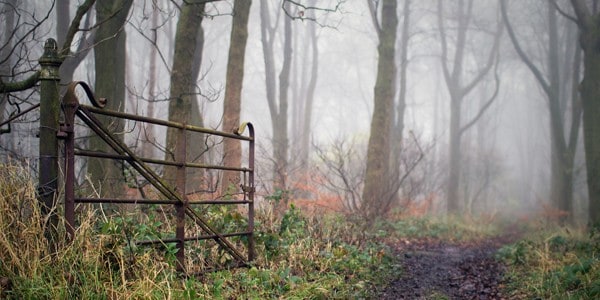
Choosing community
I will admit that I read these declarations and feel a great sense of pride in my chosen community, and gratitude towards those who articulated such a clear opposition to hatred and intolerance. When I first began my own journey into Heathenism, I read these statements and thought, fuck yes. These are the people I want to stand with. This is my shieldwall.
So… when and where are we fighting? Do I need a helmet?
Hmm. That’s always the tricky bit, isn’t it? Our opponents have made their stand clear, just as we have made ours. It’s hard not to feel a little like Michael Scott in The Office. (I… declare… bankrupcy!) But notwithstanding my tendency to feel silly in tense situations, this is actually very serious. These fuckers are taking my symbols and painting them on shields and parading around chanting vile racist things. The so-called Soldiers of Odin are taking the name of one of my gods and marching around my streets. People look at the hammer of Thor around my neck and think to themselves, “Is this one of those racist dickheads?” (Or even worse, “Hail, folkish brother!”) Not acceptable. Not acceptable in any form, but especially not in the name of my faith.
Thanks to the work of those behind the CPDI and Declaration 127, we as inclusive Heathens have made our stand clear.
So, where do we go from here?
Related: Kvasir, Odin, and the Mead of Poetry, by John Farrell
Image credits: Jeanne Menjoulet, Loz Pycock, Alan Levine, Mark Steele
- The Canadian Press, “RCMP says local detachment has received complaints about flag,” CBC News, 10 May 2019. Ed note: The headline and article has since been rewritten several times. [↩]
- “Declaration 127,” declaration127.com. [↩]
- pagandeclartion.com, “Canadian Pagan Declaration on Intolerance.” [↩]




